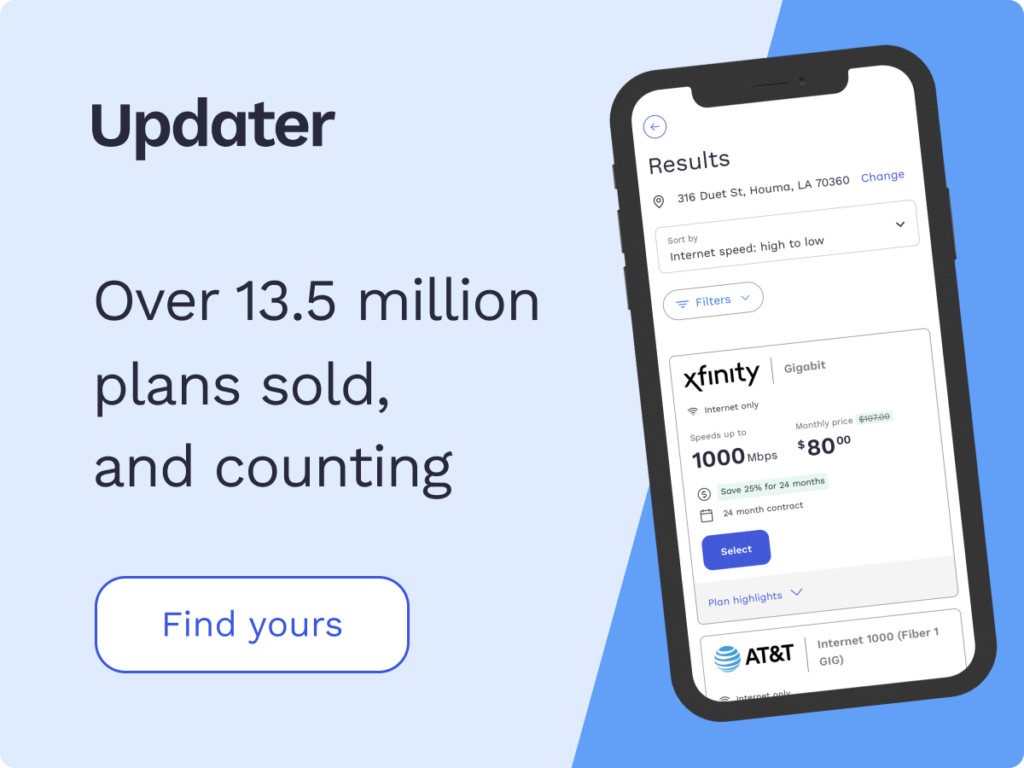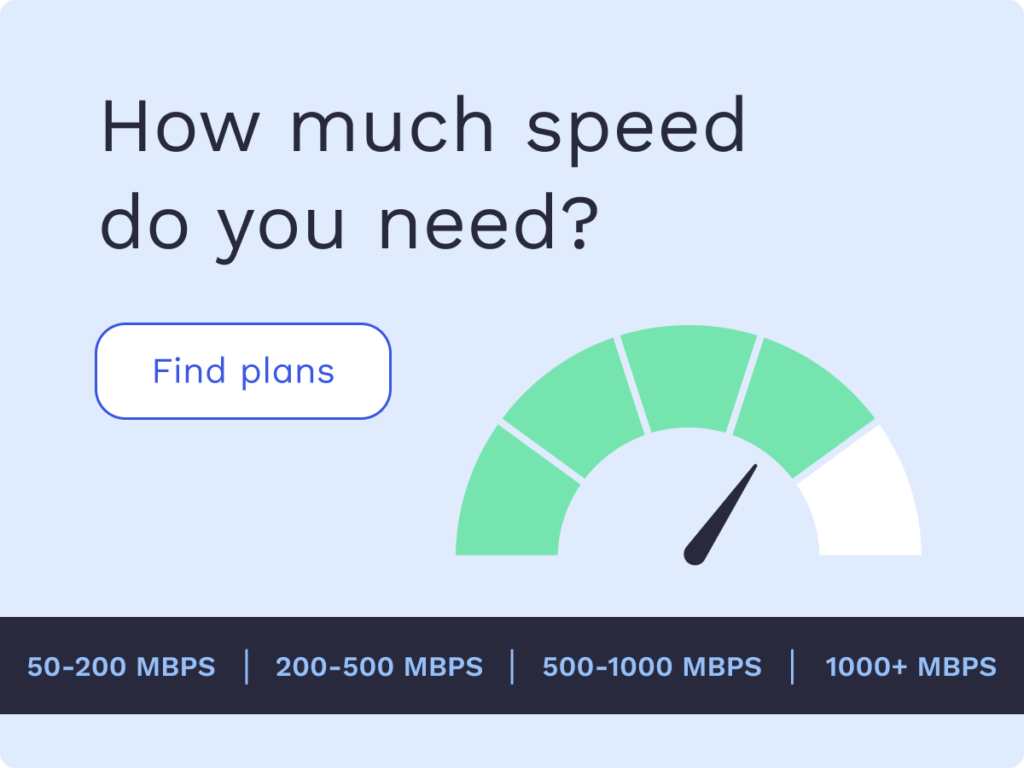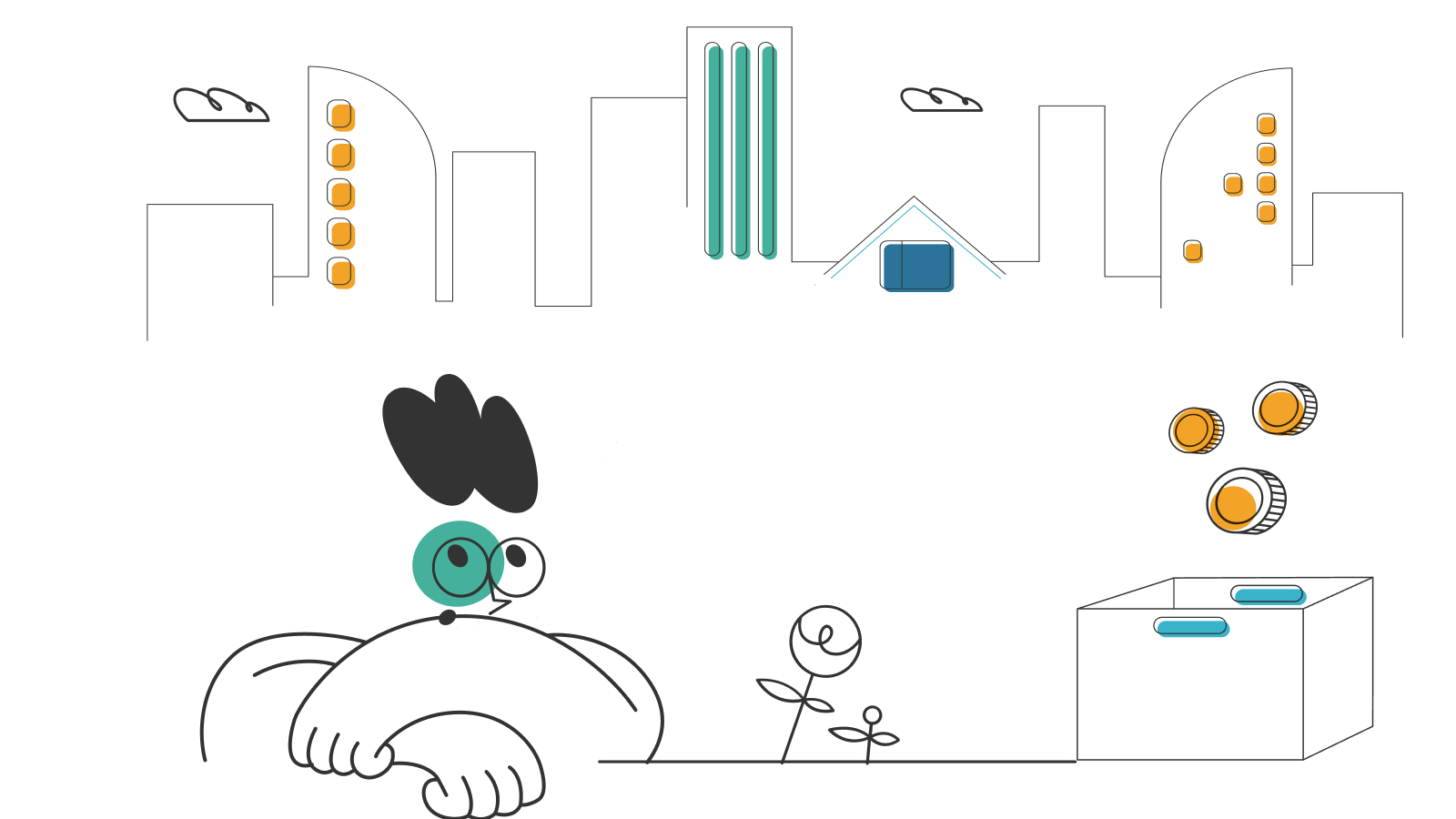A Comprehensive Guide to Internet Throttling

Are you experiencing slow internet connection speeds? If so, your internet service provider (ISP) could be intentionally limiting your internet connection’s bandwidth. This is technically known as internet throttling or bandwidth throttling, and your ISP might have various reasons to restrict your internet bandwidth. Fortunately, it’s fairly easy to tell if someone is throttling your internet, and there are different ways to manage internet throttling.
This detailed guide covers all you need to know about internet throttling, including why ISPs tend to use it and what you can do about it.
- What is internet throttling?
- Why ISPs use internet throttling
- How to tell if your internet is being throttled
- How to stop internet throttling
- Internet throttling FAQs
What is internet throttling?
Internet or bandwidth throttling is when your ISP limits your internet speed on purpose without informing you. It manifests as a connection that is slower than what your ISP regularly provides you. Internet throttling is not against the law since network users can benefit from the practice. By equally distributing bandwidth and regulating overburdened networks, users get to enjoy a more consistent connection.
ISPs must follow net neutrality laws that promote an open and free internet where all traffic and content are treated equally. However, net neutrality laws vary from country to country. Some, like the United States, have repealed the law, making some of the questionable facets of internet throttling legitimate by law. Some of the controversial aspects of throttling include:
- The ISP can legally throttle some types of content on their network to affect what clients interact with online.
- If you are on a lower-priced data plan, the ISP could throttle your internet to incentivize you to switch to a more expensive plan.
- Your ISP could charge a higher fee for internet services that revolve around streaming platforms since they consume more bandwidth.
There are many reasons why your internet could be slow, and internet throttling is only one factor. Before contacting your ISP or trying anti-internet throttling measures, you can try improving internet speed yourself by doing the following:
- Moving closer to the router or bringing the router closer to you.
- Using a tool to map the signal strength around the house, showing the best and worst spots.
- Using Ethernet cables and a wired connection instead of Wi-Fi.
- Temporarily unplugging your modem or router.
- Checking for bandwidth hogs and removing unnecessary background programs.
- Upgrading your network driver(s) and router firmware/software.
Why ISPs use internet throttling
The main reasons why ISPs throttle their internet include regulating internet traffic on the network, supporting paid prioritization, enforcing data limit caps, and reducing bandwidth congestion.
Regulating the network
There are many things people can do that ISPs may want to restrict. These activities can vary from minor issues, such as consuming a lot of bandwidth, to being suspected of participating in unlawful online activities. However, most ISPs don’t provide details on why and how they may use throttling to regulate their networks, so it can be difficult to pinpoint the reasons for these types of slowdowns.
Supporting paid prioritization
Under paid prioritization, your ISP might decide to throttle your internet to serve a company that has paid a premium for a fast internet connection. Although paid prioritization was illegal in the United States, the practice became legal when the Federal Communications Commission (FCC) repealed net neutrality laws in 2018. While ISPs may frame this practice as necessary, it’s typically more beneficial to the company than to its users.
The following are some of the unfortunate scenarios that can be the direct result of paid prioritization:
- The ISP can decide to provide their own streaming services and throttle other similar services such as Hulu and Netflix, making it difficult to compete.
- The ISP can demand that a specific website pay more for improved load times.
- The ISP may decide to offer a fast internet lane for specific popular platforms for an additional cost. That means they can throttle the internet for any user who does not pay the premium fee in addition to their standard monthly charges.
Reducing bandwidth congestion
Most ISPs will throttle internet services to regulate a congested network and ensure traffic keeps flowing. When many people are trying to connect to a network at the same time, internet throttling ensures that all clients have the same access to the web — instead of some getting full access while others get nothing. Often, this situation arises during peak usage periods.
Even if you have a paid subscription, your ISP can limit your internet speed if you regularly game or stream at 4K quality. This is because those activities consume too much bandwidth, and it costs too much to supply similar high speeds to the entire network. However, when internet throttling is done in the correct way, you should not be able to notice the throttling.
Enforcing data caps
ISPs offer their services in different packages, which means they limit how much data you can upload and download depending on how much you pay. If you exceed your download limit, even if your billing cycle is not yet due, the ISP can limit your bandwidth. Everything on the internet is driven by uploads and downloads, like posting to social media or streaming a video and all of these interactions consume your monthly data allotment.
Your ISP monitors your data usage through an online portal to ensure your internet address does not go over during the allocated period. Any ISP that implements internet throttling must clearly state that information in the service agreement. Before bringing up concerns about internet speed to the ISP, go through the service agreement to confirm they perform internet throttling. If not, you should contact the customer care service to request more information.
How to tell if your internet is being throttled
You can use various techniques to confirm if you are experiencing internet throttling or just slow internet speeds.
Test your internet speed
When you select a data plan, you are purchasing bandwidth speeds. If you suspect internet throttling, run an internet speed test to confirm if you are getting the average speeds you are paying for. Since internet speeds fluctuate, it would be best to run the test at different times of the day and calculate an average.
Run a port scanner test
A port is where your computer connects to something else on the internet, such as to a server for streaming services. Your ISP keeps an eye on your port activity and can throttle the data if they deem it necessary. You can check if your ISP is blocking specific ports through a port scanner that detects all active ports.
Compare your speed with a VPN
Virtual private networks (VPNs) usually encrypt your connection to ensure you are browsing anonymously. The system hides your IP address, restricting your ISP or browser from collecting data on your online activities. If your internet speed increases when you are using a VPN, your ISP may be throttling your bandwidth.
How to stop internet throttling
If after running internet speed and port tests you suspect your ISP is limiting your bandwidth, there are several ways you can handle the situation without having to contact your ISP. It’s important to remember that the ISP has every right to internet throttling, but the following techniques can help you stop your ISP from throttling your internet.
Monitor monthly data usage
In some cases, your ISP is not at fault for implementing an internet throttle on your IP address. Many internet plans have a limit on the amount of data you can consume for each month. If that is the case for you, keep an eye on your usage to avoid overage fees and throttling. You can reduce activities that consume large amounts of data like streaming movies and gaming online. There are quite a few apps that can help you track data usage to avoid going over your set data limit.
Switch to a different ISP
If you are frustrated by your current ISP, you can always switch to another one if it is possible. Depending on where you reside, multiple ISPs can compete to attract new or maintain existing clients. Based on your needs and experience, you can start looking for a new ISP in your area. Ensure the ISP informs you of data caps and whether they throttle their network before you make a decision.
Use a VPN
Using a VPN is one of the most effective ways to protect yourself from internet throttling. Typically, a VPN works by encrypting your internet traffic. This means it hides your internet activity by routing your IP address to servers in different locations all around the world. It becomes difficult for your ISP to monitor your data usage by masking your internet activity, meaning you are free to download or stream games, among other data-intensive activities.
To throttle your internet connection, an ISP needs to see precisely what you are doing. If they can’t access your internet activities, limiting your internet is no longer an option. Additionally, a VPN is most effective if you are experiencing selective internet throttling. But if you are experiencing limited internet speeds due to network congestion or data caps, a VPN will not help you.
Ensure that you are not using a free VPN because your ISP can detect that you are using a VPN and may throttle your internet. Additionally, free VPN apps may collect your data to sell and fill the app with invasive ads. Here are a few VPN apps that are effective against internet throttling:
NordVPN
NordVPN is based in Panama, boasts more than 5,100 servers in 60 countries, and supports up to six devices. Thanks to its strict no-logs policy, it is one of the most reputable VPNs available today. With NordVPN, you get to enjoy blazing fast speeds and unlimited bandwidth, allowing you to stream, browse and download without any throttling worries.
SurfShark
This app is registered in the Netherlands and has more than 3,200 servers in 65 different locations globally. The app is relatively cheap but still maintains high levels of protection for your data and browsing activity. Unlike other VPNs, SurfShark has no limit on the number of devices you can link to one account. Additionally, you can allow specific apps and websites that don’t consume heavy data to bypass the VPN. This can make your ISP even less suspicious of your actual data usage, primarily if you activate the camouflage mode.
PureVPN
Based in the British Virgin Islands, PureVPN has 6,500 servers in more than 78 countries and allows ten devices on one account. The app implements a no-log policy with an always-on audit conducted by KPMG, ensuring your data is secure and safe from anyone who might be monitoring your web activities. PureVPN has new upgrades featuring 20Gbps server speeds making the app completely prepared to operate in the new world of 5G internet speeds.
ExpressVPN
Founded under the safe privacy jurisdiction of the British Virgin Island, ExpressVPN is available in 94 countries, with 160 VPN server locations, and offers unlimited bandwidth. Their VPN network is designed for fast speeds thanks to private, encrypted DNS on every server. ExpressVPN also features VPN split tunneling, allowing some device traffic through the VPN and a network lock kill switch that protects your data from the ISP even if the VPN connection drops.
Internet throttling FAQs
Is internet throttling legal?
Yes, internet throttling is allowed by law in the United States and may even be necessary for an ISP’s network health. Your internet connection could be even slower if your ISP was not allowed to manage usage over their network. By throttling your internet, your ISP can ensure stable connections.
Does internet throttling mean I am being monitored?
In some ways, yes. Your ISP regularly checks your data usage, but they might not have access to exactly what you are doing. Some ISPs have a data cap for most users depending on their plan, so you might experience internet throttling because you have exceeded your monthly data limit.
Can I stop my ISP from throttling my internet?
There are several ways you can protect yourself from internet throttling, but the most effective is installing a VPN. The apps are effective in hiding your internet activity from your ISP, making it difficult for them to enforce internet throttling.
*Pricing varies by location and availability. Speeds may vary. All prices subject to change; for current pricing and availability visit our internet service page. Prices as of 3/28/22.
Disclosure | Updater articles are based on our own data and research, independent from partner relationships. We are not compensated by partners for information and opinions presented here. Our Editorial Terms of Service can be found here.














